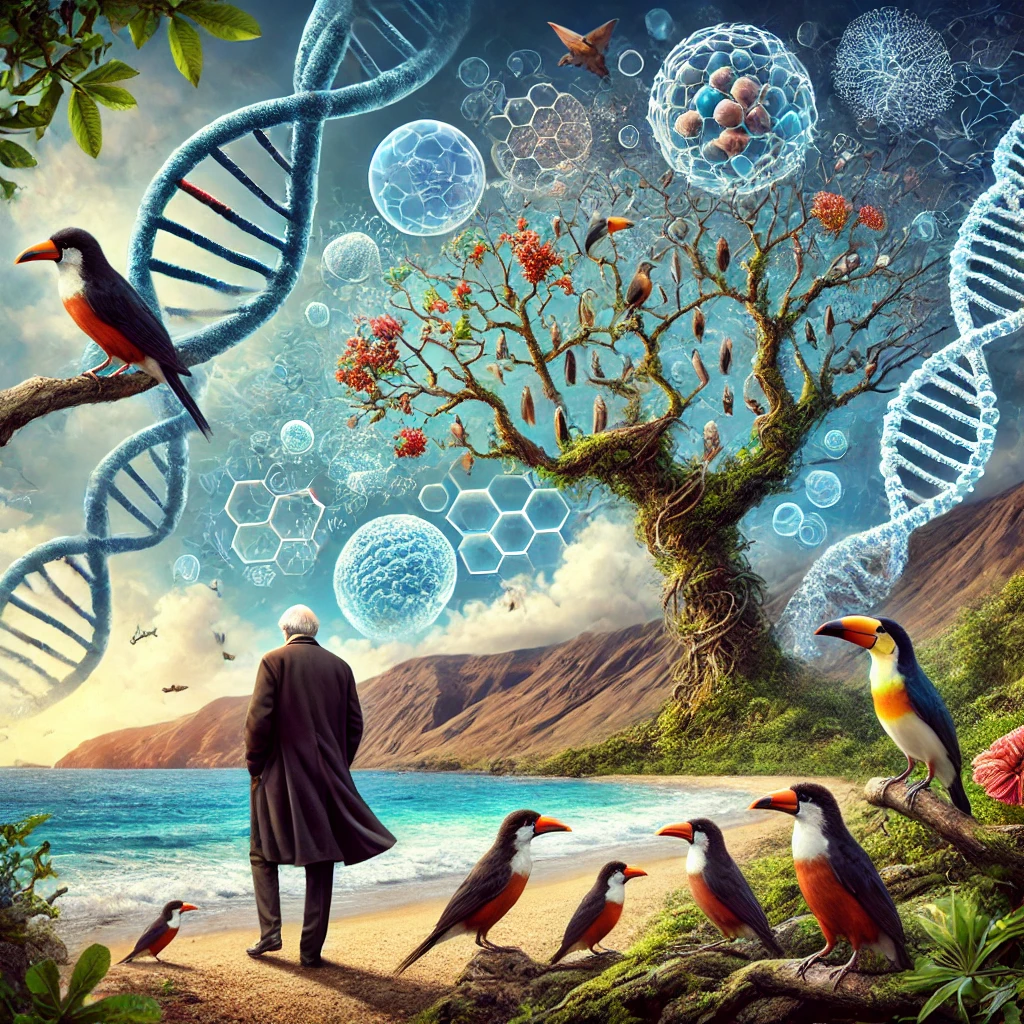When Charles Darwin first put pen to paper on On the Origin of Species, he had no way of knowing that his theory of natural selection would go on to become the backbone of modern biology, if not the most significant idea in all of science. He likely didn’t expect that over a century and a half later, his idea would not only survive but redefine our very understanding of life itself.
But natural selection is more than just a cornerstone of biology. It is the most powerful explanatory tool humanity has ever wielded, with tendrils that extend far beyond genetics and adaptation. It informs everything from medicine to economics, artificial intelligence to climate science. Unlike theories of gravity or quantum mechanics, which explain narrow slices of existence, natural selection is the grand unifying thread that stitches together the story of life. It explains why peacocks have elaborate tails, why antibiotic resistance is a growing crisis, and why humans—even with all our intelligence—are still subject to the same evolutionary pressures as any other creature that ever lived.
And yet, for all its power, natural selection remains widely misunderstood. The average person may recognize Darwin’s name and may even recall the phrase “survival of the fittest.” But press them for details, and the answers become murky. Even among scientists, confusion abounds. Natural selection is often reduced to a mere mechanism of adaptation when, in truth, it is a relentless sculptor of life itself, shaping not only individual species but entire ecosystems, civilizations, and even ideas.
This lack of understanding is not just an academic concern. It is a serious issue with profound consequences. If we fail to grasp how natural selection works, we fail to understand ourselves. If we do not see how evolutionary forces shape our psychology, our societies, and our relationship with the environment, we cannot hope to address the existential challenges of our time—climate change, pandemics, even the threat of war. These crises are not isolated events. They are products of a species that evolved under one set of conditions and now finds itself in another. Without an appreciation of natural selection, we are like a ship adrift, charting our course without knowledge of the currents beneath us.
At its core, natural selection is disarmingly simple: organisms with traits that confer an advantage in survival and reproduction are more likely to pass those traits on. Over generations, these traits become more common, sculpting the endless variation of life. Consider the finches of the Galápagos Islands, with their beaks precisely shaped by the demands of their environments. The process is elegant in its simplicity, yet profound in its implications.
But natural selection is not just a matter of biology textbooks and dusty museum exhibits. It is the reason why cancer remains a formidable opponent, constantly evolving resistance to treatments. It is why the flu vaccine must change every year, as viruses adapt to our defenses. It is why, in the face of modern technology and medicine, human psychology still bears the fingerprints of a past where scarcity, tribalism, and immediate survival dictated our behaviors. Our bodies and minds were honed for a world that no longer exists, and the consequences of that mismatch shape everything from our dietary habits to our political divisions.
Misunderstanding natural selection has led to some of history’s gravest errors. It has been twisted to justify racism, eugenics, and economic exploitation. The misinterpretation known as Social Darwinism took a brilliant scientific insight and mangled it into a political weapon. But natural selection is not a moral code. It does not dictate what should be—only what is. Evolution does not care for human ideals of justice, fairness, or kindness. It is indifferent, an impassive force shaping life without intent or foresight.
And yet, understanding it allows us to rise above it. Knowing that we evolved to be tribal does not mean we must forever be divided. Recognizing that our instincts were shaped for an environment of scarcity does not mean we must resign ourselves to overconsumption and environmental destruction. Awareness is the first step toward transcendence. By understanding the forces that shaped us, we gain the power to shape our future.
Darwin was the first to shatter the illusion of human exceptionalism, to show that we are not separate from nature but part of it. His work was the beginning of a grand Copernican shift, one that continues to this day. Just as Copernicus displaced Earth from the center of the universe, Darwin displaced humanity from the pedestal of divine creation. But the revolution remains incomplete. We still struggle with the implications of our evolutionary heritage, still resist the full weight of what it means to be a product of natural selection.
The final step in this revolution is to integrate this understanding into how we see ourselves, our societies, and our future. To accept that natural selection is not just an arcane concept in biology but a fundamental truth about existence. To recognize that in its cold, indifferent mechanism lies a profound beauty—a beauty that reveals our deepest connections to all life that has ever been and all life that will ever be.
Natural selection is the story of life. And if we listen carefully, it tells us the story of ourselves.

